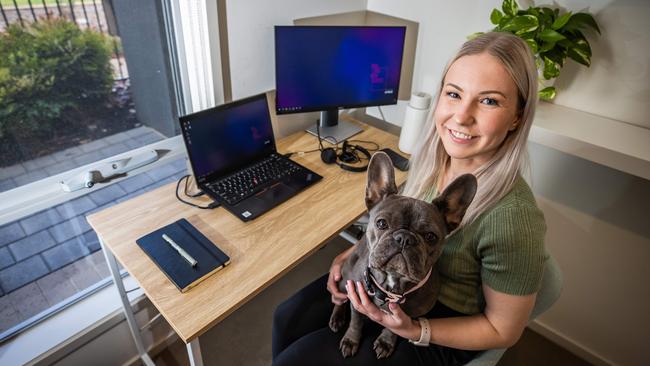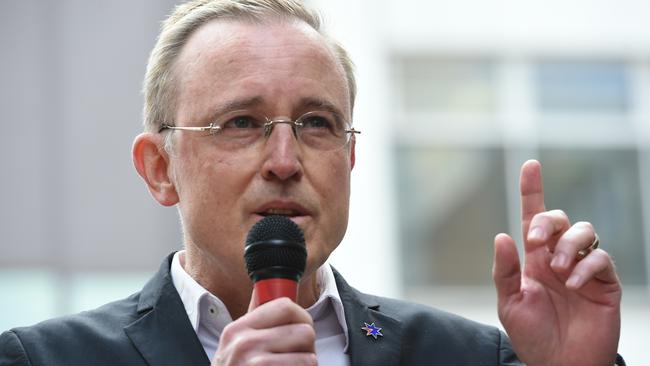Why Covid safety fears mean work from home is here to stay
Ordering staff back to the office could prove a risky business for employers, SA experts are warning.
SA News
Don't miss out on the headlines from SA News. Followed categories will be added to My News.
Workplaces struggling to entice employees back to the office will hit a brick wall if their staff raise worries about catching Covid-19, an SA industry expert says.
It comes as the Victorian government has sought legal advice in a bid to bring employees back to the office.
While the state government says similar proceedings are not on the cards here, questions have been raised about what it is doing to entice public sector employees back to the CBD as tax-payer-funded offices remain largely empty.
Flexible working arrangements have also become bargaining tools in the private sector in an effort to retain staff.
University of SA research associate Dr Rachel Potter, who has a background in work, health and safety, said Covid-19 had highlighted a number of grey areas within Australia’s labour laws.

This, she said, included clear guidelines on who held the power when it came to negotiating return-to-work arrangements.
“Employers can direct employees to return to work, but there’s a lot of issues around that. It’s not as clear cut,” Dr Potter said.
“They can direct them to return to work if it’s lawful and reasonable but as Covid is regarded as a hazard in the workplace ... employers have to do everything they can to mitigate and minimise that risk.
“However, if a person has a genuine concern for their health and wellbeing, then they can refuse to return to work.”
Commissioner for Public Sector Employment Erma Ranieri said there were currently no public health directions or prohibitions in place on people working from home.
“Chief executives have discretion on how employees returning to the office best applies to their agency but should continue to offer flexible work arrangements,” she said.
Ms Ranieri would not comment on the state government’s own return-to-work mandate, including the number of public sector employees still working from home.

It’s an issue of great concern to Business SA Chief Executive Officer Martin Haese who said small business owners depend on the return of city workers.
“While Business SA clearly recognises that flexible workplace arrangements are here to stay for many employers, that does not excuse any lack of transparency about the numbers of public sector employees either working from home or working from their taxpayer funded offices,” he said.
Flexible work arrangements is the way forward for professional services sector firm KPMG which employs around 300 staff across Adelaide.
“A lot of people really enjoy the opportunity to work from home ... so we want to keep this flexible approach,” Chairman of partners SA Justin Jamieson said.
“However, I do think we will move to a position where, without it being a mandate, teams will find it works best when we have a set number of days together in the office.”
Working from home two days a week provides greater work-life balance for Adelaide-based risk consultant Avalon Kay.
“I live 40 minutes out of the city, so being able to save on extra travel time a couple times a week has been good,” she said.
“I also think I’m more productive working from home, especially with report writing as there are less distractions.”





